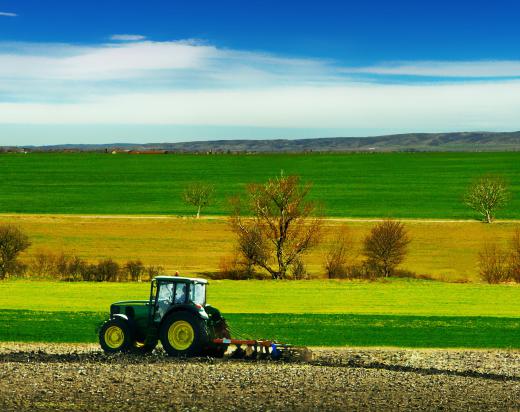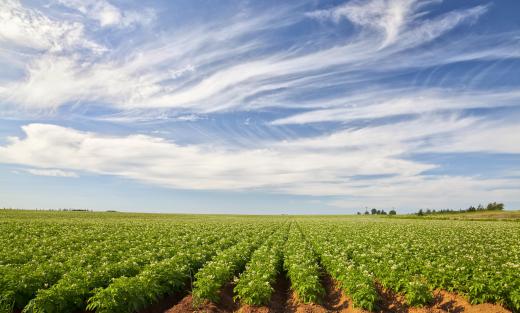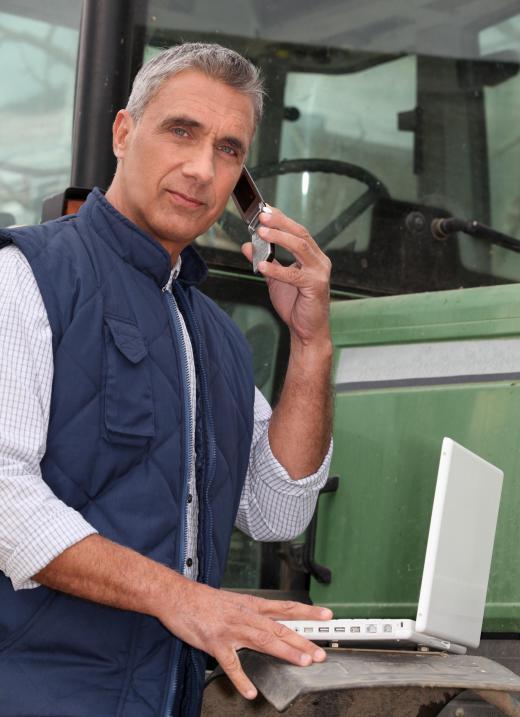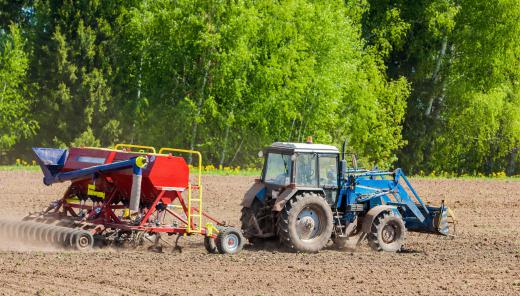There are two broad categories of agribusiness companies, namely those that manage and own farms and those that provide essential goods and services to those farms. In general, “agribusiness” refers to corporations that center on food, be it meat or plant, that is intended for human consumption. Among farms, the majority tend to be major operations that provide food growth and production on a large scale. Smaller niche producers can also make up a significant market share in some places, though. These more focused operations often do just one thing — seafood production, for instance — and may serve only a narrow customer base. On the product supply side, companies can often be divided according to what they provide. Some deal with farm use machinery, like tractors and sorting machines; others deal with food preparation, slaughter, and packaging. Still more concern themselves with personnel and coordinating farm labor needs. Pesticides and chemicals suitable for commercial farms is another possible supply niche.
Large Corporate Farms

Corporate farms differ from small, private farms, which may grow food for local use or for sale at nearby markets or suppliers. Agribusiness companies generally employ modern business strategies with the aim of earning a profit on their goods. Some control the entire food production process, from growing plants to food processing and packaging goods. These agribusiness companies are often criticized by worker advocacy and environmental groups, which sometimes argue that the corporations force smaller farms to go out of business or cause environmental damage.

Some of the bigger agribusiness companies produce many different types of goods, such as livestock as well as things like corn and wheat. Depending on the size of the corporation, activities may also be spread out among several smaller farms. Each of these may look to the outside observer like a small, possibly family-run business, and they typically carry different names despite being owned and managed by the same parent company.
Niche Markets

Corporations don’t have to be massive or far-reaching to participate in the agribusiness sector, and some are legitimately small operations. Most of these focus on regional supply and demand, and often produce only one or two food types. Some of the largest corporations are national or even international in reach, whereas smaller operations are more likely to be strictly regional.

Seafood operations are often considered to be businesses that have a more niche operation, and can be both large and small. Some specialize in providing certain markets with things like fresh crab and lobster, or may be engaged in creating canned tuna or sardines. These sorts of companies generally have their own fishing vessels to harvest fish and their own processing plant where the catch is processed and packaged.
Machinery Producers

Farm machinery producers are also in the agribusiness sector. These firms may manufacture any type of equipment that could be used in the agricultural process. This can include products such as tractors or equipment that is used in slaughterhouses. Some of these companies are hugely profitable and hold the market edge when it comes to providing certain things. Their primary focus is sales, and in most cases they aren’t actually engaged in using the equipment themselves.
Packaging and Processing

It’s also essential that food be packaged, and there are companies that focus specifically on this aspect of the production process. Some companies may lease out part of their business to another similar business in order to increase profits. Examples of this include businesses that rent packaging plant facilities to outside groups. This often means that smaller companies can have their food packed and processed at the larger plant, sometimes using cans or other packaging materials that are used, or have been designed, by the corporation.
Personnel Specialists

Other agribusinesses companies may specialize in providing personnel. This means that they focus exclusively or almost exclusively on finding qualified workers, such as field laborers or production and processing plant employees. Many of these businesses also hire farm managers to supervise operations, while some firms provide management services and consultation themselves. Leaders of these sorts of companies often come from a hands-on farming background which gives them a lot of experience when it comes to knowing what these sorts of operations need, but they can also simply be experts in human resources.
Agrichemicals
A number of chemical companies that create fertilizers and pesticides for conglomerate farms can also be classified within the agribusiness sector. Large farming operations often have different needs when it comes to chemicals than smaller farms do, and they often contract directly with the manufacturers to provide things more or less “to order.” Researchers from these sorts of companies sometimes work directly with farm owners and managers to create chemical products designed specifically for certain uses. The widespread use of chemicals on commercial farms has raised a lot of concern with both environmentalists and human health lobbyists, but the efficiencies these sorts of products provide make them very compelling to farm owners.
